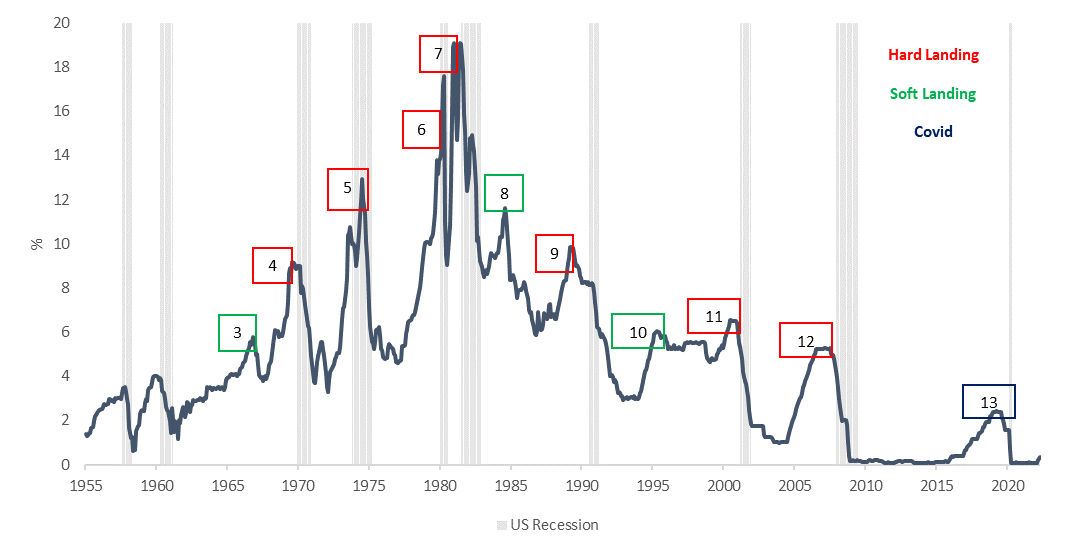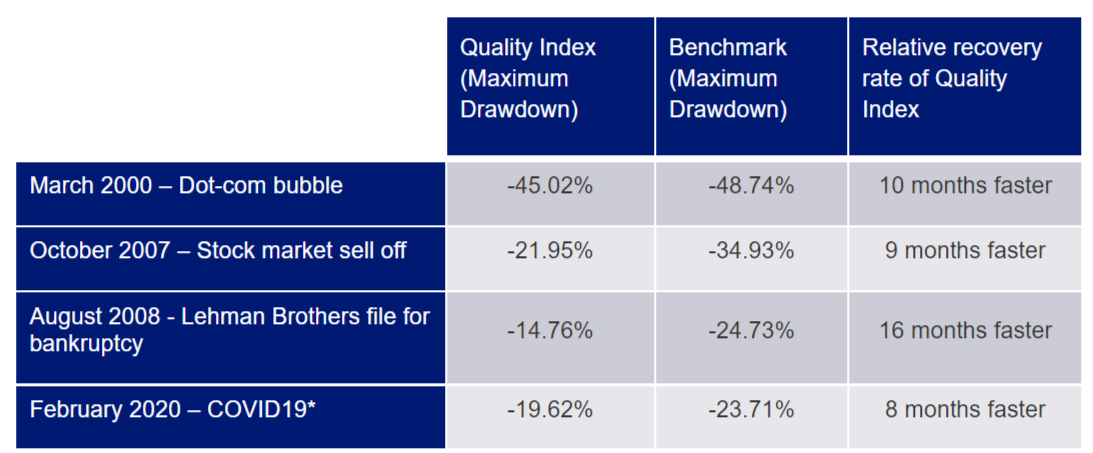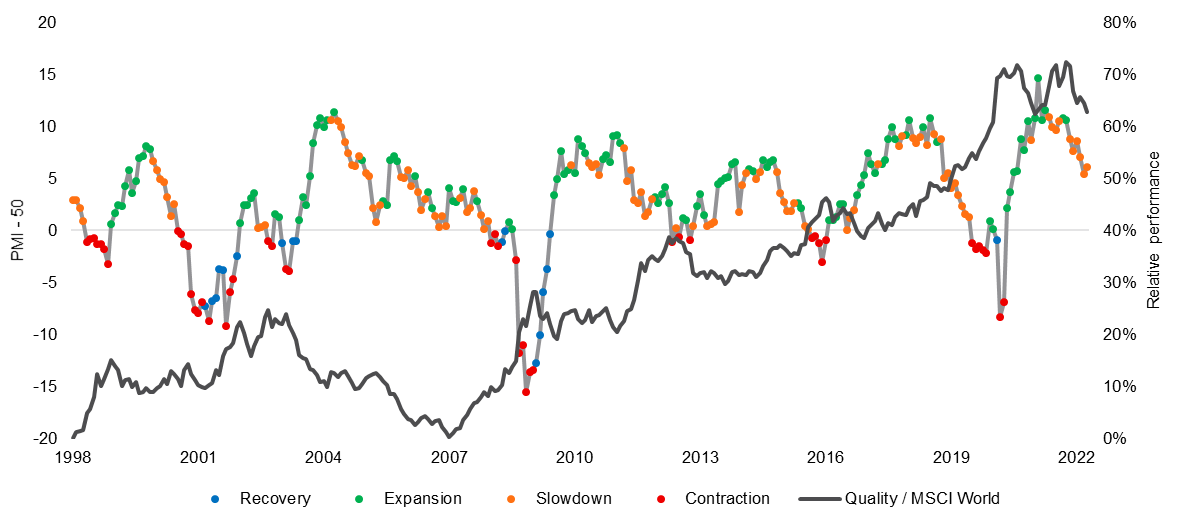Flight check: Finding protection from a ‘hard landing’
Global markets have capitulated since the NASDAQ 100, proxy for US growth and tech stock performance, reached an all-time high in November 2021. The falls are the result of two key drivers: high inflation and the corresponding higher interest rate expectations. As a result valuations have been downgraded and ‘growth’ companies have been hit hardest.
While central banks are doing all they can to combat inflation, they are also wary of a ‘hard landing’, that is when an economy enters recession after an interest rate hiking cycle. Savvy investors are sifting through the current ‘bear’ market, preparing to navigate the global macroeconomic environment. Should a hard landing eventuate, quality is the ‘go-to’ factor during a slowdown and the corresponding recovery. Quality's defensive characteristics are reinforced during these periods.
Hard landing definition
A ‘hard landing’ refers to a period where the economy enters a recession following a series of central bank cash rate increases. Historically, it has been the most common scenario, 75 percent of US monetary policy tightening cycles since 1955 have resulted in a recession. It is understandable why many investors see this as the base scenario for this cycle, a recession followed the last five instances when US inflation peaked above 5 percent; 1970, 1974, 1980, 1990 and 2008. The US inflation print for June 2022 was 9.1 percent.
Figure 1: US Federal Fund effective rate versus recession periods

Source: Board of Governors of the Federal Reserve System (US)
The ‘flight to quality’
Some investors have used the phrase a ‘flight to quality’. What it means is that when risks in markets are pronounced, investors choose quality versus non-quality assets to ride the storm. To illustrate how quality companies have performed, we use the MSCI World ex Australia Quality Index (Quality Index), which has been calculated by MSCI back to 1994, capturing the recessions in 2000, 2008-2009 and the most recent COVID downturn. Each of these recessions resulted in, or followed stock market falls.
Historically quality companies have lost less and recovered faster in risky periods associated with market falls. In the table below, we have highlighted the dot-com bubble, GFC and the COVID-19 market meltdown. In all these episodes, quality international companies lost less and recovered faster. The table below compares the drawdowns of the MSCI World ex Australia Quality Index, versus the market benchmark.
Table 1: Significant drawdowns events, 2000 to 2022

Source: MSCI, VanEck, Morningstar Direct. Comparison of drawdown between the MSCI World ex Australia Quality Index (‘Quality Index’) versus the MSCI World ex Australia Index (‘Benchmark’). Maximum drawdown is the peak to trough decline from the start of the month specified to the recovery date, expressed as a percentage. The rate of recovery is the number of periods taken to recover from the trough to peak incline. The calculations for the above include the reinvestment of all dividends but do not include fees and other costs associated with an investment in QUAL. You cannot invest in an index. Past performance is not a reliable indicator of future performance of the index or QUAL.
Right
now, markets are experiencing a ‘bear market’, which has the generally accepted
description of a market fall greater than 20%.
This is the 27th bear market in the S&P 500 since 1928. The average length of the past bear markets was 289 days (9.5 months), with an average decline of about 36%. The longest was in 1973-74, which lasted 630 days.
Now if we compare these to bull markets of which there has been 26 since 1928. Bull markets tend to be longer, averaging 991 days (33 months). The average rise of the share market during a bull market is 114% and the longest was almost 11 years, from 2009 until the COVID-19 crisis.
It’s little wonder then why savvy investors are looking for opportunities, understanding they may not pick the bottom, but they were not going to pick the top either.
Figure 2 illustrates how quality companies typically outperform when manufacturing activity (a proxy for economic activity) decelerates (orange) and/or contracts (red).
Figure 2: US ISM Manufacturing PMI Index and MSCI World Quality versus MSCI World performance

Source: Bloomberg. MSCI. Past performance is not a reliable indicator of future performance.
Table 2: Factor performance during different economic regimes

If the global economic recovery falters and we enter a recession, it could benefit quality companies, as they tend to offer investors relative protection during weaker economic environments and heightened market volatility.
5 topics

